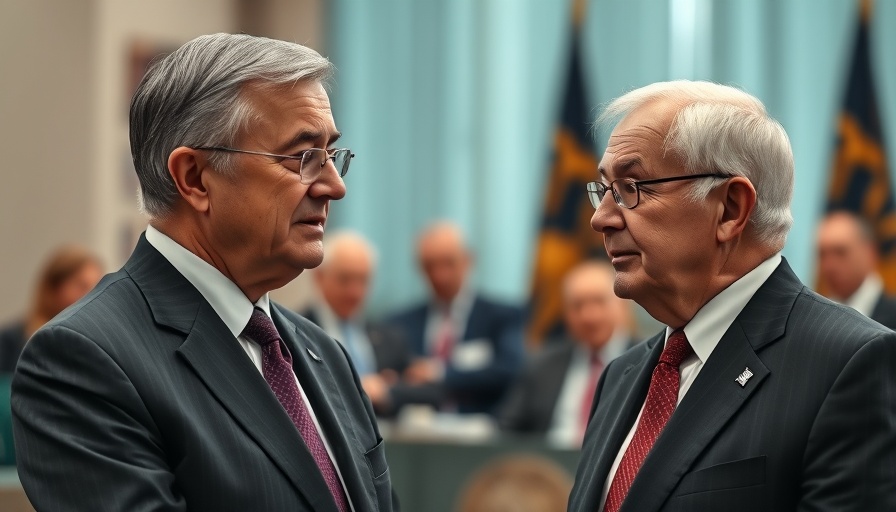
The Significance of the Signal Leak Investigation
In a landscape where governmental transparency and accountability are increasingly scrutinized, the recent leak of sensitive information from a Signal group chat among Trump administration officials raises pressing questions. Senator Roger Wicker's call for an expedited investigation illustrates the delicate balance between national security and the public's right to know. This incident not only reveals the reliance on encrypted communications by government officials but also highlights potential breaches of protocol that can have national and international repercussions.
Unpacking the Content of the Leaked Chat
During a recent session, Jeffrey Goldberg, editor of The Atlantic, disclosed his presence within the Signal group chat and shared alarming details about discussions surrounding military strikes in Yemen. The texts, which included operational specifics such as timing and weaponry, directly contradict earlier claims by top officials who mentioned that "no war plans" were discussed. Such discrepancies fuel skepticism regarding the transparency of communications within the administration and engender trust issues among lawmakers.
A Bipartisan Approach to National Oversight
The bipartisan initiative prompted by Wicker and Senator Jack Reed reflects a rare moment of collaboration in a politically divided Senate. Their combined efforts to obtain a classified briefing from a senior administration official will not only seek the truth about the leaked details but will also aim to restore faith in the findings of the Pentagon's Inspector General's Office. This development highlights the importance of cooperation across party lines, especially when dealing with sensitive national security issues.
The Implications of Information Security in the Digital Age
This incident underscores the vital nature of information security in our increasingly digital government environment. The simultaneous rise of encryption communication apps like Signal poses a set of challenges for oversight and accountability. As officials seek to protect sensitive discussions from potential leaks, the very nature of these platforms may raise questions about their vulnerability and the implications of any potential security breaches.
Reactions from Political and Security Circles
The reactions within both Republican and Democratic circles reveal a fissure regarding trust in the information being disseminated by the current administration. Critics are questioning the integrity of not only the communications being leaked but also the assurance that no classified information was shared, leading to broader discussions about the effectiveness of governance under the Trump administration. This reflects a divide that resonates with both partisan perspectives and raises broader concerns about future national security.
Historical Context: Previous Intelligence Revelations
It is important to note how historical context informs our current understanding of intelligence leaks. Previous revelations, such as those involving WikiLeaks or Edward Snowden, changed the discourse surrounding government accountability, the public’s right to information, and the dangers inherent in leaking classified material. These events have set a precedent for how sensitive information is managed and perceived, serving as a stark reminder of the risks that come with transparency.
Future of Intelligence Oversight
As the investigation progresses, it is likely to shine a spotlight on the efficacy of existing oversight protocols within the Defense Department and the broader national security architecture. With the presence of an acting inspector general, questions about the thoroughness and impartiality of the inquiry will remain prevalent as stakeholders from both sides of the aisle push for answers. This situation may lead to significant policy decisions regarding how intelligence is communicated and who has access to sensitive information.
Conclusion: Call for a Culture Change in National Security
The ongoing developments surrounding the Signal chat incident highlight not only the imperative for a transparent investigation but also urge a cultural shift in how national security discussions are approached. The collaboration of bipartisan efforts to uncover the truth embodies a collective commitment to greater accountability. As citizens, staying informed and engaged in these matters is crucial; we must advocate for transparency and accountability in government to ensure our democracy remains resilient.
 Add Element
Add Element  Add Row
Add Row 



 Add Row
Add Row  Add
Add 


Write A Comment